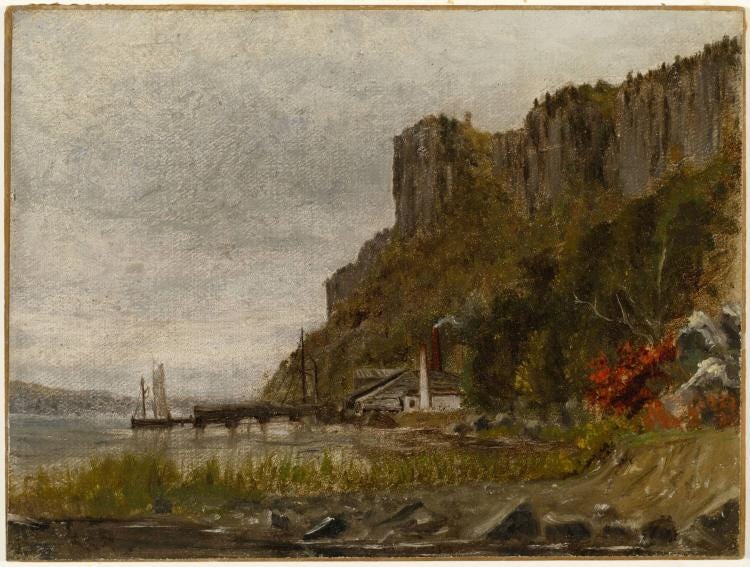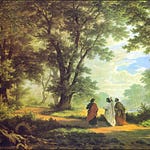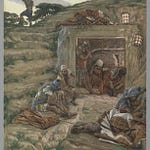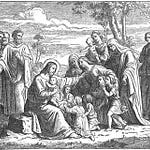Our Word of the Week might as well be fence, since that’s what we’re talking about here, but I’ll bet few of our readers will know why. I certainly didn’t, until I’d studied Middle English. When I thought of what was “beyond the pale,” I imagined something like that pale wash of stars that we call the Milky Way, which sight I’m told that city dwellers can never see. To be “beyond the pale” would then be like the Starship Enterprise, somehow penetrating an energy barrier that rings our galaxy, which is in fact that same Milky Way, though we are happily situated on its outskirts. Why the Enterprise couldn’t just dip below it or hop above that barrier, I couldn’t figure, but then, Star Trek was either Paradise Lost or Gunsmoke in outer space, under the guise of science fiction, so I didn’t press the matter. Or perhaps “beyond the pale” meant “beyond the pale blue of the sky,” somewhere in the Van Allen belts, maybe. In any case, even if the literal meaning of “beyond the pale” wasn’t clear, the emotional force of it was. You weren’t supposed to be there. Your idea was beyond the imagination of any sensible person. You were flung into distant reaches by fanaticism. You had eaten too many hamburgers, too quickly, and now your head was spinning. You were beyond the pale.
But let’s suppose that you are staking out some land for a homestead or for a cavalry fort. It’s Gunsmoke time, you see. The land around you is flat and so it affords no protection from vagrant marauders. So one thing you can do is to fence it round: and a fence, obviously, is for defense, if you are in South Dakota, but defence, if you are in New South Wales. The word fence comes into English with the Norman French, and it’s ultimately from Latin defensus, the past participle of defendere, to defend — meaning, literally, to thrust someone or something away with a blow. Now, you can erect all kinds of fences, but the most effective fence for your labor and time and resources may be the most straightforward. You drive tall pointed stakes into the ground, and bind them together with cross-pieces. In early Middle English, each one of these stakes was a pale, from French pal, from Latin palus. Is it related to English pole? Related? It’s the same word, pronounced in slightly different ways, and then the one word became two, meaning somewhat different things, like shirt and skirt. Such a pair is called a doublet: and sometimes the meaning is the same, though you’d use one of the pair only in a certain dialect or region, as in church and kirk. Now then — Captain James T. Church? No, not for him.
You can’t have a fence with just one pale or pole, because the marauder would just step around it, as I wondered why the Enterprise didn’t just skip the ring. So you need pales. Somebody whose specialty was driving pointed stakes into the ground to make a fence, that is, somebody skilled in pales, was in English a paliser or palliser. “Aha!” you cry, if you are a lover of the novels of Anthony Trollope, as Debra and I most certainly are. “So that’s where Plantagenet Palliser got his name!” Or, as some of the characters in the Palliser novels jocularly call him, but never to his face, “Planty Pal.” Later on, the French and the Italians developed a word to describe not one post but a whole ring of them: une palissade, uno palisado. And the English, quick as always to pick up a good word from somewhere else, picked up this one too: so that F Troop of happy memory, surrounded by the peace-loving and commerce-sharking Hakawi Indians, was nevertheless “protected” by a big palisade.
“Now,” you say if you’ve lived your whole life along the lower stretches of the Hudson River, “I know why the English called those cliffs the Palisades!” You’d be three-quarters correct. I’d always assumed that the English saw those cliffs rising straight up from the level ground, with an almost level top, but deeply indented, so that they look not like a flat blank surface, but like columns set right against each other, and they said, “Just like palisades!” That did happen, but it wasn’t the English. It was the Italian explorer Giovanni da Verrazzano, for whom the bridge linking Brooklyn with Staten Island is named. But the odd thing is that the Lenape Indians had the same idea. They saw the cliffs and said they looked like rows of trees: hence the place name Weehawken, for a township now perched atop the Palisades, in New Jersey. Or at least that is one of the guesses as to the name’s meaning.
There’s a sense to beyond the pale, then, that does not suggest your having lost your senses and joined the ever-popular ranks of space cadets and lunatics. You are outside the fence that protects a people but also defines who they are and what they believe. If I said to Captain Kirk, “People should stay on their home planets and mind their own business,” he would think I had gone beyond the pale, because in his mind, the very definition of “human” included the desire to split infinitives and “to boldly go where no man has gone before.” He’d be wrong about that, I think.
Word & Song is an online magazine devoted to reclaiming the good, the beautiful, and the true. We publish six essays each week, on words, classic hymns, poems, films, and popular songs. Paid subscribers also receive audio-enhanced posts, a weekly podcast (alternately Poetry Aloud or Anthony Esolen Speaks), and access to our full archive of over 700 essays.
To support this project, please join us as a free or paid subscriber.
Listen to this episode with a 7-day free trial
Subscribe to Word & Song by Anthony Esolen to listen to this post and get 7 days of free access to the full post archives.














